Game: “Terra Invicta”
Terra Invicta
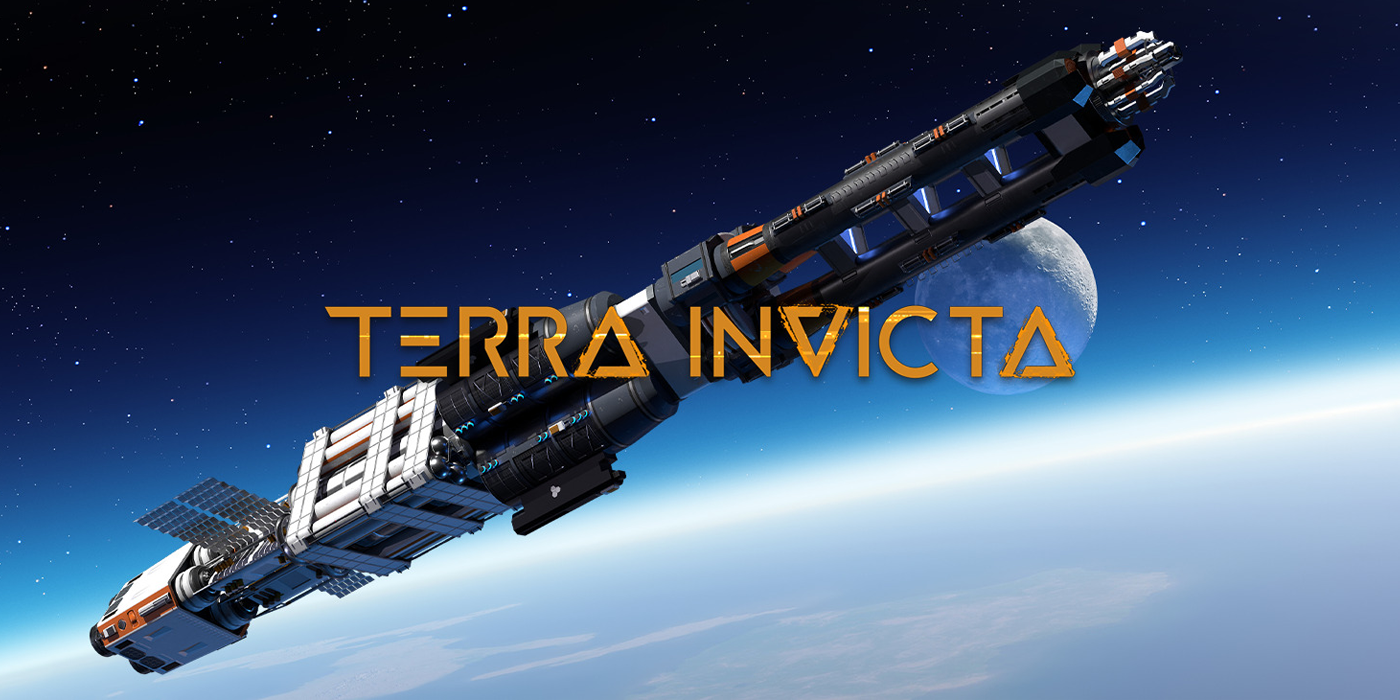

Terra Invicta is a game I had on my radar for a long time. The development team behind it are the creators behind the XCOM mod, The Long War; a huge expansion in scope, depth and breadth of the 2012 Firaxis remake of the tactics/strategy classic. I sunk many, many hours into fighting the Long War, with my latest attempt only last year ending, once again, in gruelling, glorious failure. Terra Invicta is a new and original game from that same team, and doubles down on the strategy and scope of XCOM while leaving the tactical battles behind. You’re not just managing the resistance, now you’re charged with building it, and the flexibility you have over your methods, planning and even goals is almost overwhelming. With an area of operations spreading out from Earth to cover the entire Solar System it’s frankly impressive Terra Invicta functions at all, and that it does so as well as it does is a truly stellar achievement.
At A Glance
| Scores | |
| Visuals | 8 /10 |
| Sound | 7 /10 |
| Gameplay | 8 /10 |
| Overall | 8 /10 |
| Positives | + Deep strategic gameplay + Huge scale and scope + About four games in one |
| Negatives | – Can be overwhelming, at first – Weak tutorialising – Some areas overdeveloped compared to others (SPACE!) |
| Price (When Reviewed) | £34.99 |
| Our Playtime | ~20 hours (Not nearly enough!) |
| Version Tested | 0.3.49 |
| Available On | PC |
For all that I’ve mentioned XCOM in the context of the history of Terra Invicta, it doesn’t play at all like Firaxis’s titan of the tactics genre, which I found quite refreshing. As much as I love shuffling my guys between cover under heavy sectoid plasma-fire, things have moved on a fair bit since 2012, and recent entries in the tactics field such as Midnight Suns or Daemonhunter have pushed the modern version into quite new territories. Terra Invicta instead plays almost more like a board game, reminding me a fair bit of something like Pandemic, though with the scope and scale dialled up to eleven.
The real meat of the game – the early game, at least – is a sort of political sim. You have a choice of factions, all with widely different goals, but all play roughly the same as you attempt to take control of Earth’s resources. You’ll do this by sending your agents to perform various tasks in different countries around the world, from rallying support to political assassinations. There’s a rough turn-based structure, though events play out in real time, with success or failure dependent on skill checks on your characters and the resources you are willing to invest in their success.
As you progress you’ll gain control points – representations of various state operati, from the legislative/executive branches of government to mass media, trade unions, etc. Gain total control of a country and you can direct its policy. You’ll also need to defend your control points against the other factions as they attempt to do the same across a highly detailed map of the globe. It begins relatively slowly, exploratory almost, but very quickly escalates into a quite brutal cloak-and-dagger conspiracy sim worthy of a really good X-Files knock off.

And honestly, if this was the full game, I’d be pretty happy! I spent a fun evening enacting Nigel Farage’s worst nightmare as an aggressive conspiracy consolidating and federalising Europe, another trying and failing to break into China against the fascist Humanity First faction who wormed in just ahead of me. It can take a false start or two to figure out which levers do what, and where your focuses should be, but there is a solid game in here in its own right.
But remember the whole alien invasion thing? I mean, I didn’t win every one of my games, but whatever faction you’ve selected and whatever goals they may have, they all hinge on engaging with the looming threat. Each of those control points you’ve been struggling over down on Earth generates resources. For the most part these are pretty standard – money, influence, operational capacity etc., and all functioning as a kind of mana system for your agent interactions. But there’s another key resource – Boost. Boost is a kind of abstract representation of your ability to put stuff in space. At the start of the game there’s not much available – the game begins in September 2022, and the powers able to put things in space are pretty much as you’d expect – America, Russia and China. Boost is, however, far and away the most vital resource, long term. If your early game strategy isn’t focused around it then you will quickly find yourself left behind, literally, by the competition.
There are interesting ways to go about things beyond trying to crack open a superpower though (stronger countries being harder to infiltrate than smaller ones). For example, in my Farage’s Nightmare scenario, a united Europe is easily wealthy enough to kick-start a space industry, if you set the focus and policy accordingly. Russia’s Boost power is all located in Kazakhstan, as all good space nerds will know, and so instead of trying to take control of Russia itself you can try and separate Kazakhstan from its partner and essentially steal Russia’s space program. They may not like this.

Conflict on earth can quite easily spark and spiral. The game begins with the real-life war in Ukraine in full swing, and other wars – up to and including full nuclear exchanges – are possible, either driven by the factions and their conflicts or just the unpredictable nations themselves. There is a lot being simulated here. Nuclear war can lead to nuclear winter and widespread devastation. Climate change is a thing. You could play out the opening stages of this game in some wildly different ways, setting up vastly different scenarios, and somehow I’ve written almost 1,000 words and we’ve not even gotten to space yet.
With Boost accumulated, the solar system beckons. Probes, space stations, moon bases, asteroid mining…. There is a lot. And, easily forgettable until they very much aren’t, above it all hangs the Damoclean sword of the alien invaders.
While the Earth-based conspiracy/political game plays out like a board game, with actions assigned to your agents, and space exploration more a management game of spending your resources to, well, get more resources, there’s an entire space combat game buried in the mid- to late-game as well. I’ve not delved as deeply into this as I’d like, though it is surprisingly complex – Newtonian physics, many levels of equipment and weapon systems, and subsystems… it’s an order of magnitude more complex than something like Homeworld, and while some of the micromanaging can be automated or ignored, given the abstract level in most of the game, a bit of a strange focus that shows its mod-maker roots. Clearly, this was someone’s passion – there are lagrange points modelled, for god’s sake, something I don’t think I’ve seen in a game outside Kerbal.

Terra Invicta is a huge game, and one that had I put 100 hours into I still wouldn’t really feel like I’d touched the sides. I’ve not really gotten into the end game of it. I’ve not tried any of the factions who focus on trying to cooperate with the aliens, rather than fighting them. For all I’ve messed around and experimented in the early game, there’s still plenty of different starting directions and strategies I want to play around with. In this review I’ve also not touched on the plot, which while nothing groundbreaking, is still a different enough spin on the alien invasion trope to keep things interesting.
Terra Invicta is a deep, interesting and engaging game that doesn’t quite play like much else out there. It spins a lot of plates and, by and large, manages to keep them in the air. There’s a political and conspiracy sim, a light-touch grand strategy game, a resource exploration and exploitation game and a full space-combat sim – any one aspect of which could have easily been spun out into a stand-alone game. There’s a whole research and tech tree system that works brilliantly differently from anything else I’ve seen in a game like this, with a competitive-cooperation angle that is really interesting! I’m genuinely surprised the game works as well as it does – it had sat on my Steam wishlist for many years as a curiosity; something I wasn’t sure would ever see a release and something I’d have been entirely unsurprised to find an over-ambitious failure. That I didn’t is a real source of delight – if anything I’ve touched on sounds at all intriguing to you then you owe it to yourself to sign up for what, in a year of big releases, might just be 2022’s most interesting game.
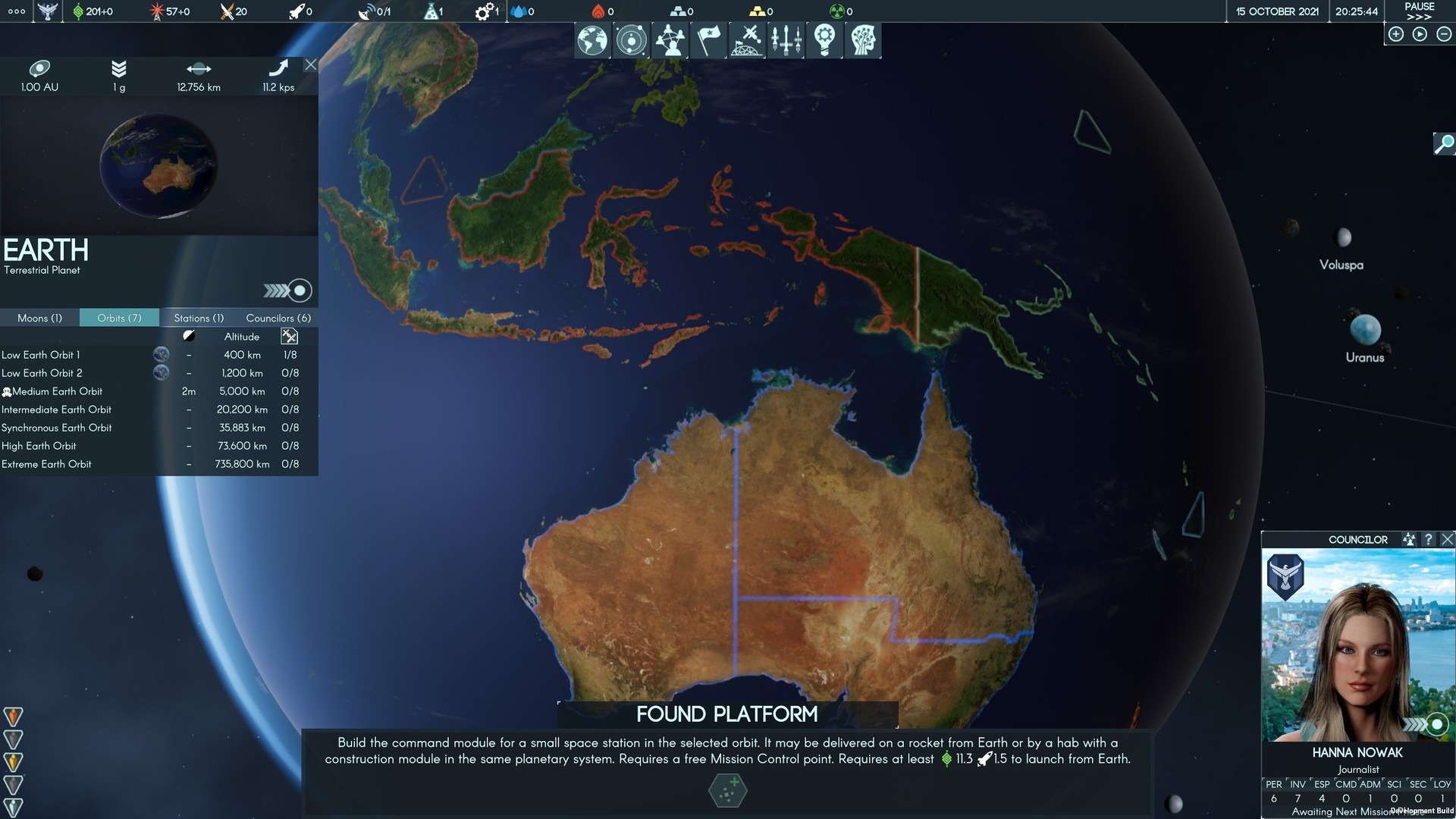
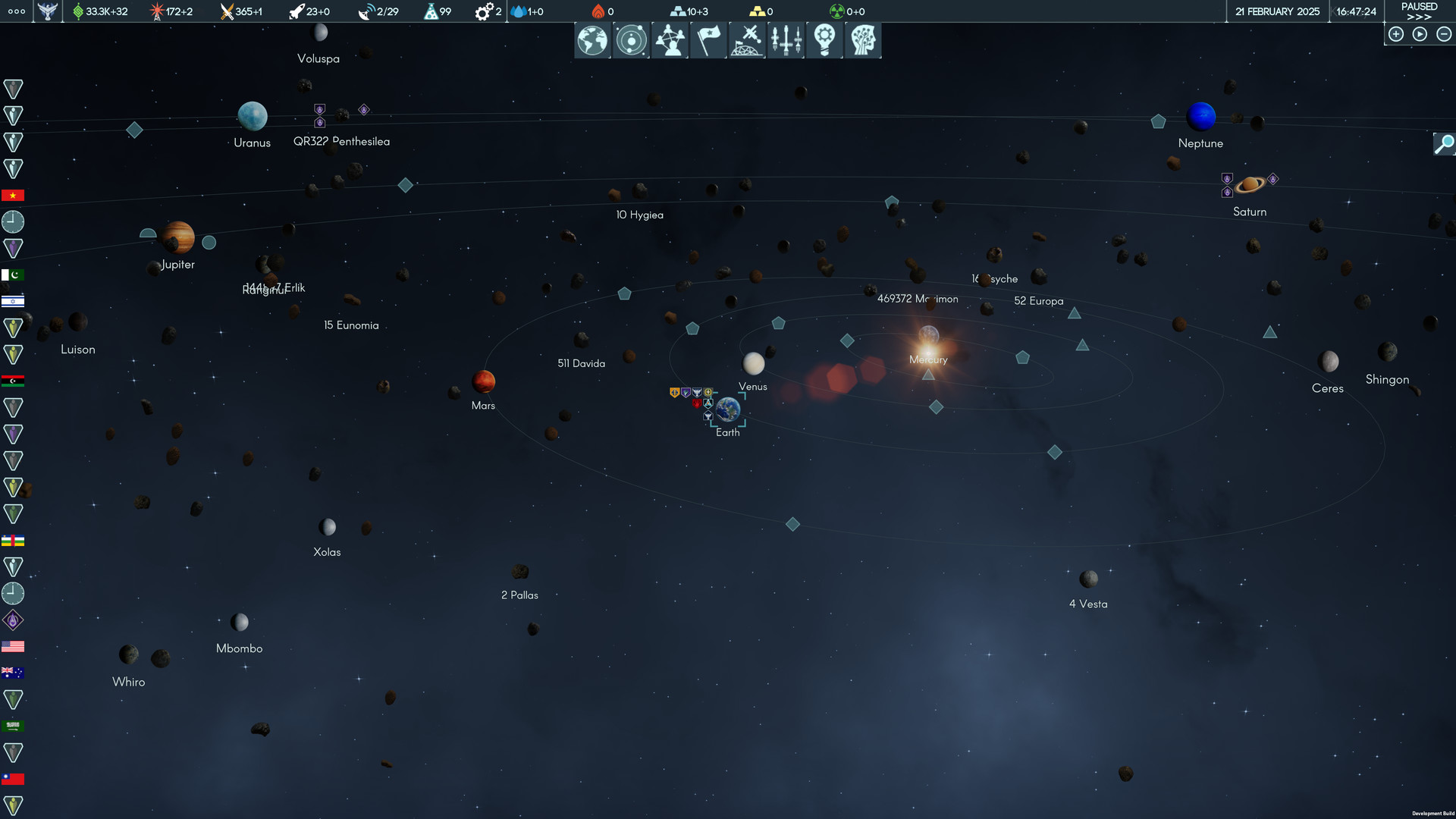
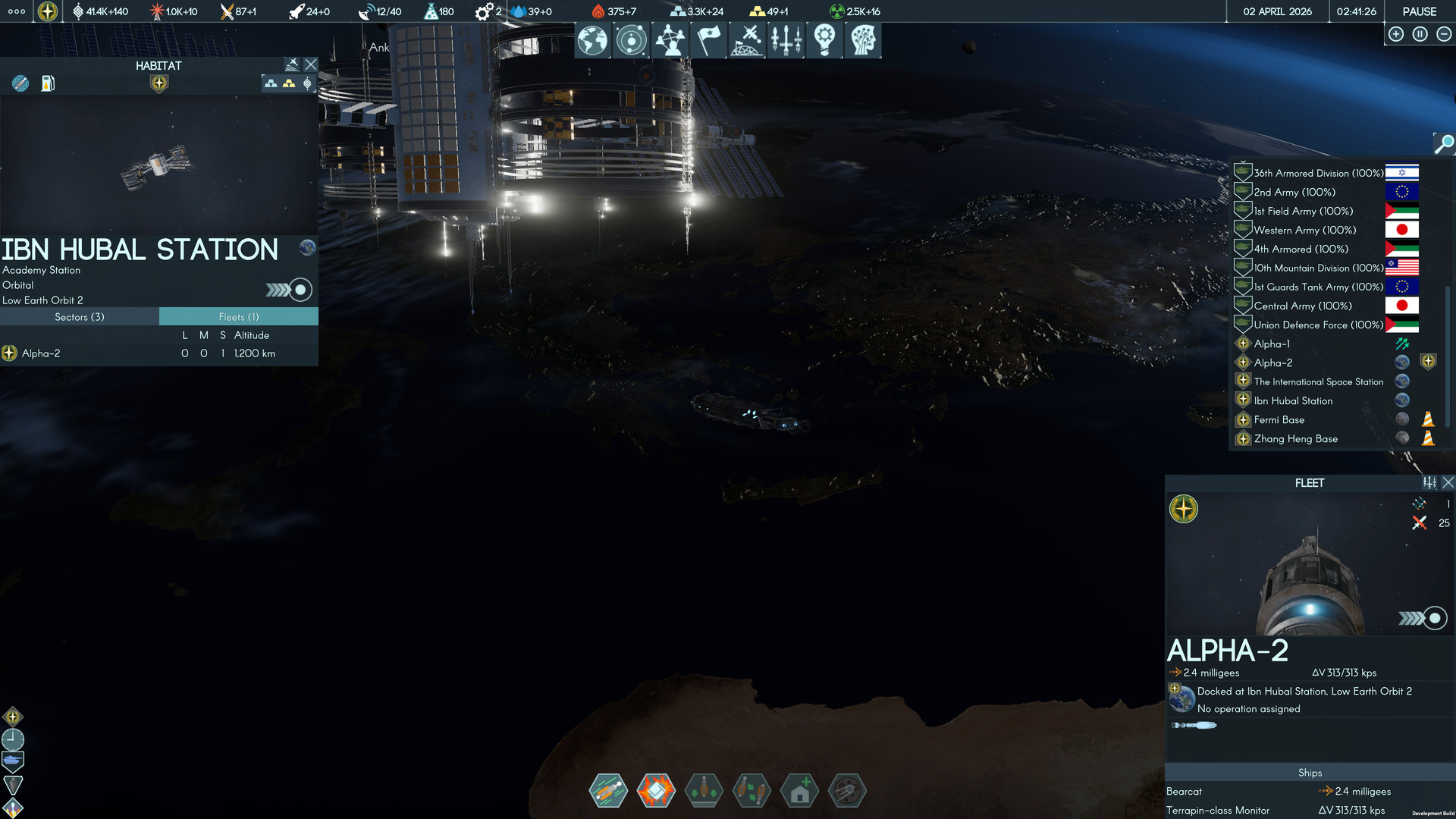
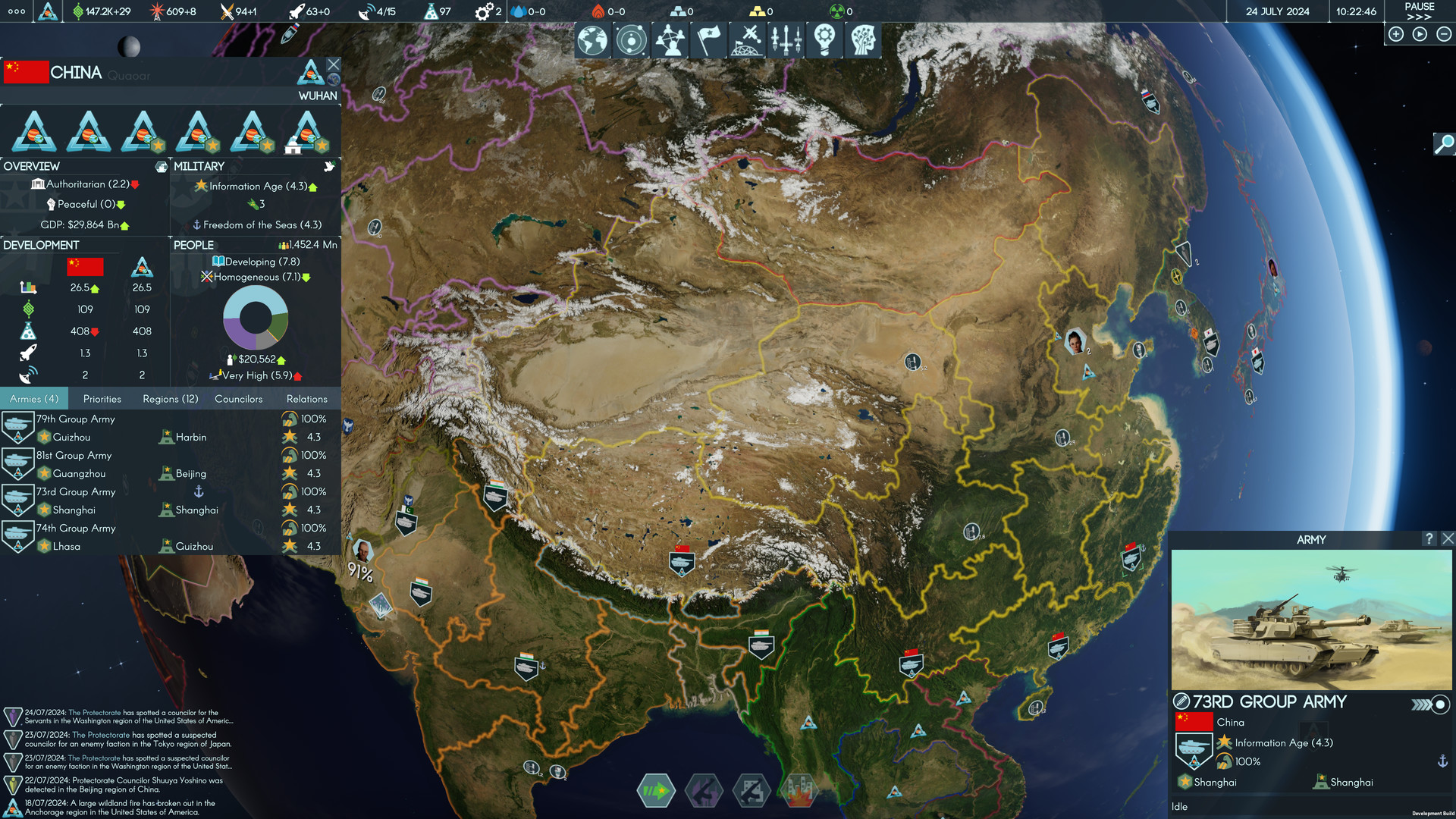
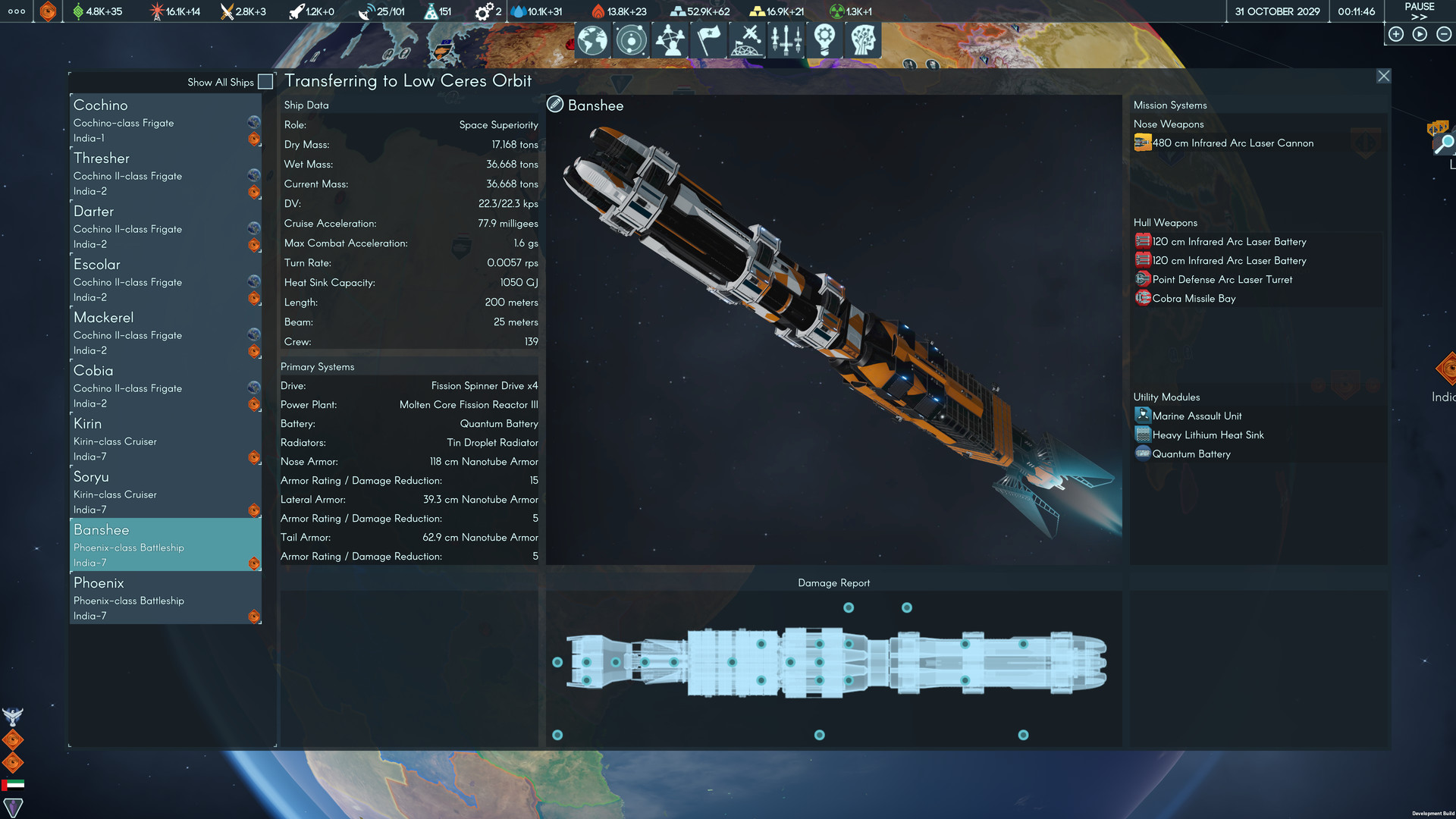
In the interest of full disclosure, VGamingNews was provided with a copy of the game in order to conduct this review.






